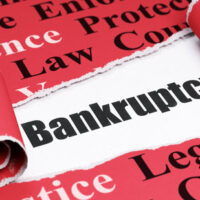What Is A Bankruptcy Reorganization Plan?

Have you been looking into the possibility of Chapter 11 bankruptcy for your business, or a personal bankruptcy under Chapter 13? If so, you have likely come across the terms “reorganization bankruptcy” and “reorganization plan.” When individuals file for reorganization bankruptcy, these types of bankruptcies are often known as wage-earner’s plans because they require the debtor to show that they earn a regular wage, and that the regular wage is sufficient to cover the monthly payment associated with the reorganization plan. Businesses also file for reorganization bankruptcies in order to reorganize business debts and catch up on payments owed to creditors. But what is a reorganization bankruptcy, exactly, and what is a reorganization plan? Consider the following information from our West Palm Beach bankruptcy lawyers.
Multiple Chapter for Reorganization Bankruptcy
First, if you are looking into a reorganization bankruptcy, you should know that there are four different chapters under which a party can file for a reorganization bankruptcy: Chapter 9, Chapter 11, Chapter 12, and Chapter 13.
Not everyone or every entity is equally eligible for these chapters of bankruptcy, however. Chapter 9 business is not discussed often since this is a type of reorganization bankruptcy for municipalities. Chapter 12 bankruptcy is also not a common type of bankruptcy since it is solely for family farmers or family fishermen. Chapter 11 bankruptcy is largely filed by businesses, but an individual can also file for Chapter 11 bankruptcy. Chapter 13 bankruptcy is for individuals (or married couples). Since sole proprietors are the same legal entity as their business, sole proprietorships can also file for Chapter 13 bankruptcy.
Understanding Reorganization
What does it mean to reorganize debts? In short, through a reorganization bankruptcy, debtors come up with a plan to restructure and repay the debts they owe over a period of time.
Thus the reorganization plan outlines the amount of payments the debtor will make each month, the total amount of time for which the debtor will make payments, and the amount of money that will go to each creditor who is owed. In Chapter 13 cases in particular, debtors will be able to exempt assets from the total amount of debt they owe, and they will be eligible to have dischargeable debts discharged at the end of the term of the reorganization plan. What this means is that, in certain reorganization bankruptcies, creditors with a lower priority status (i.e., unsecured debts) may not be paid any or all of what they are owed. Other creditors will be repaid the debt in full, but over a period of time that is different from what the creditor and debtor originally agreed to — thus the use of the term reorganization.
Contact Our West Palm Beach Bankruptcy Attorneys
Whether you are considering a reorganization bankruptcy as a business or an individual, it is essential to begin working with a lawyer on your case as soon as possible. Bankruptcy law in the U.S. is extremely complex, and you will want to have a legal advocate on your side from the start. You should get in touch with one of the experienced West Palm Beach bankruptcy attorneys at Kelley Kaplan Delaney & Eller, PLLC, as soon as you can to discuss your reorganization plan and your bankruptcy case more generally.
Source:
law.cornell.edu/uscode/text/11



